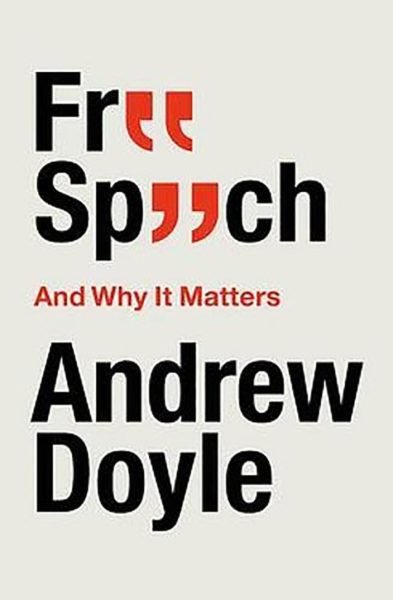Andrew Doyle likes being able to block other users from polluting his social media experience, and explains that “free speech” does not grant anyone a guaranteed audience:
How do we argue with those who are incapable of argumentation? This is a question I’ve been grappling with for some time. If your child is demanding sweets before dinner, screaming like a banshee and committing various acts of domestic vandalism, you have few options. You might attempt to initiate a debate, outlining the pros and cons of ingesting unhealthy food in advance of a nutritious meal, but this strategy will invariably fail. In the end, you’ll just have to tell the little brat to shut up and do what he’s told. Or, better still, avoid having children in the first place.
Many of us will have experienced something similar on Twitter (or X, if you insist). Something about the platform has the effect of curdling the sweetest Dr Jekylls into the most repugnant of Mr Hydes. And when someone just bleats insults, or mischaracterises your views, or generally cannot engage in good faith, the best thing to do is to block them. You don’t owe anyone your time and attention, and you’ll only drive yourself insane trying to reason with the unreasonable. Most clever adages end up being attributed to Mark Twain whether he wrote them or not, and this one is no exception: “Never wrestle with a pig; you just get dirty and the pig enjoys it”.
One of the best things about withdrawing from Twitter is that I am no longer bombarded by complaints that my blocking people on the platform proves that my commitment to free speech is inauthentic. The typical tactic is to screenshot the cover of my book Free Speech and Why It Matters as a kind of “gotcha” to illustrate my hypocrisy. And while I am grateful for the publicity, it does get rather tedious having to explain this most common and basic of misapprehensions. The podcaster Stephen Knight put it rather succinctly: “Someone implying that being blocked on Twitter is somehow a violation of their free speech is the fastest way you can tell people you don’t understand free speech”. Instead of smugly posting images of my book, perhaps they ought to read it instead.
In a surreal twist, my blocking habits on Twitter recently made the news. Just after Christmas, an article by Pierra Willix was published in the Metro with the headline: “Confusion as GB News presenter who champions ‘free speech’ blocks critics”. In truth, I have never blocked anyone for polite criticism; I welcome it. And while it goes without saying that nobody expects factual accuracy from the Metro, we should be concerned that an individual who aspires to make a living in journalism does not appear to understand the concept of free speech.
Willix has fallen for what Helen Pluckrose and James Lindsay have called “the fallacy of demanding to be heard“. They make the point that just as freedom of religion incorporates freedom from religion, the right to speak and listen also entails the right not to speak and listen. If you’ve ever received an unwelcome phone call and hung up, you have not impeded on the caller’s rights. If you choose not to read my books, I cannot claim to have been censored. If you block someone on social media, all it means is that you’re not interested in what they’ve got to say. I’ve been blocked by hundreds of people online and, although this clearly reflects poorly on their taste and judgement, my freedom of speech remains intact.




